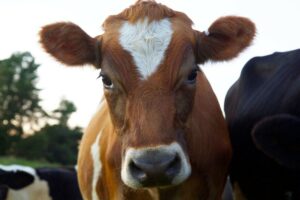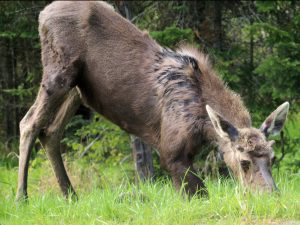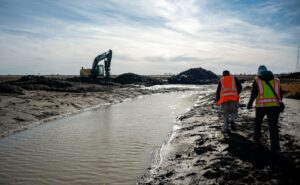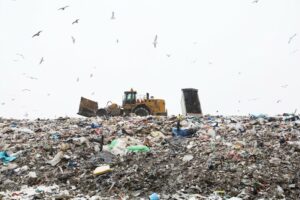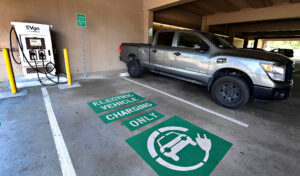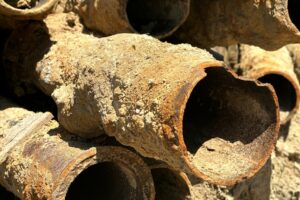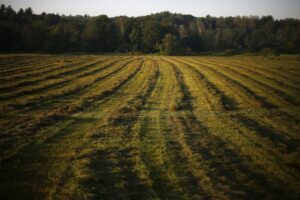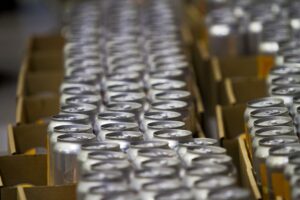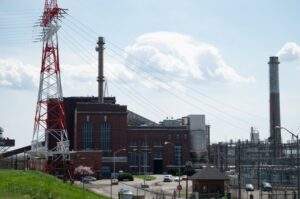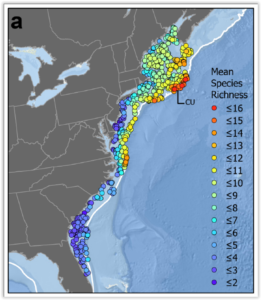Stories
Members of Vermont’s organic industry are celebrating after the U.S. Department of Agriculture closed a loophole in dairy standards. The USDA Origin of Livestock rule outlines how organic dairy farms can source the cows they use to produce milk. Generally, organic dairy farms can only transition cows from conventional care — using antibiotics and cheaper, non-organic feed…
Read MoreAs New England winters warm, moose are getting overwhelmed by winter ticks. Some scientists say hunting could help.
On a cold, sunny day in a remote part of Vermont’s rugged Northeast Kingdom, Nick Fortin — Vermont Fish and Wildlife’s lead moose biologist — holds onto his snowmobile helmet as he gestures to some young trees. The new growth from logging at this spot, in addition to its remote and mountainous setting, makes for…
Read MorePlunked on a southern New England shoreline is an understated and misunderstood ecosystem: Great Meadows Marsh in Stratford, Conn. For decades, that site was treated as an ugly nuisance, but it’s the focus of a $4 million restoration project aiming to make the coast more resilient to climate change. Rick Potvin, manager of the Stewart…
Read MoreMaine’s landfill is meant for in-state waste. Here’s how Massachusetts and NH are filling it up
Every day, dozens of trucks loaded with waste drive through the gates of Juniper Ridge Landfill in Old Town. Near the entrance, they’re greeted by a sign listing banned items, including refrigerators, propane tanks and dead animals. And at the bottom, in large red letters, is a warning: “Juniper Ridge Landfill only accepts waste generated…
Read MoreA Connecticut-run incentive designed to help low- to middle-income buyers purchase an electric vehicle continues to struggle. New data show income-eligible rebates accounted for only about 1% of all rebates issued through the state’s Connecticut Hydrogen and Electric Automobile Purchase Rebate (CHEAPR) program. “That’s not a significant uptake,” said Anthony Cherolis, who is with the…
Read MoreThe six New England states will soon receive more than $200 million from the federal government to replace lead pipes in the region’s drinking water system. The allocation is part of the Bipartisan Infrastructure Law, which was signed by President Biden last year. The overall law targets $15 billion toward replacing every lead pipe in the country’s…
Read MoreLawmakers consider $100 million fund for Maine farms affected by PFAS. But is it enough?
Maine lawmakers heard hours of testimony this week in support of a proposal to create a $100 million fund to help the growing number of Maine farms that are discovering so-called “forever chemicals” in their water or on their land. But some advocates are warning that massive sum of money still may not be enough.…
Read MoreModernizing the bottle recycling program in Mass. would have big benefits, report finds
Massachusetts could cut down on plastic litter, create less garbage, reduce greenhouse gas emissions and save cities and towns millions of dollars every year by modernizing the way it recycles beverage containers, according to a new report by the nonprofit Reloop North America. The report focuses on the so-called deposit return system (DRS) — the five cent deposit…
Read MoreThe imminent closure of a major trash plant in Hartford has set off urgent debate about the future of Connecticut’s waste. And one big question has emerged: Who decides what’s next for the state’s garbage? “We have a problem with life cycles,” said Lyle Wray, with the Capitol Region Council of Governments, a coalition of…
Read MoreThe Gulf of Maine has the most marine mammal diversity on the east coast, study finds
New research shows that ocean environments off New England contain the most diverse array of marine mammals to be found on the entire eastern seaboard. Lead scientist Brooke Hodge of the New England Aquarium says that the highest variety of mammals is found in and around giant underwater mountains and canyons. In those areas, she says,…
Read More
